If you have questions after watching Tenet we’ve got answers. At least we think these are the answers .
If there’s anything you think we missed (or, heaven forbid, got wrong) you can let us know by sending a WhatsApp to The Goggler Tenet Hotline on +60172181795 and we will get right on it. You can also reach out to us on Facebook, Twitter, or Instagram, but if you do, bear in mind we’ll just invert ourselves and update the article in the past.
WARNING: THIS ARTICLE CONTAINS SPOILERS FOR THE ENTIRETY OF TENET FROM THIS POINT ONWARDS!
SERIOUSLY, IF YOU’VE NOT WATCHED THE MOVIE YET, DON’T READ THIS.
THIS IS YOUR LAST CHANCE!
OKAY. HERE WE GO…
This Is the End, My Only Friend, the End?
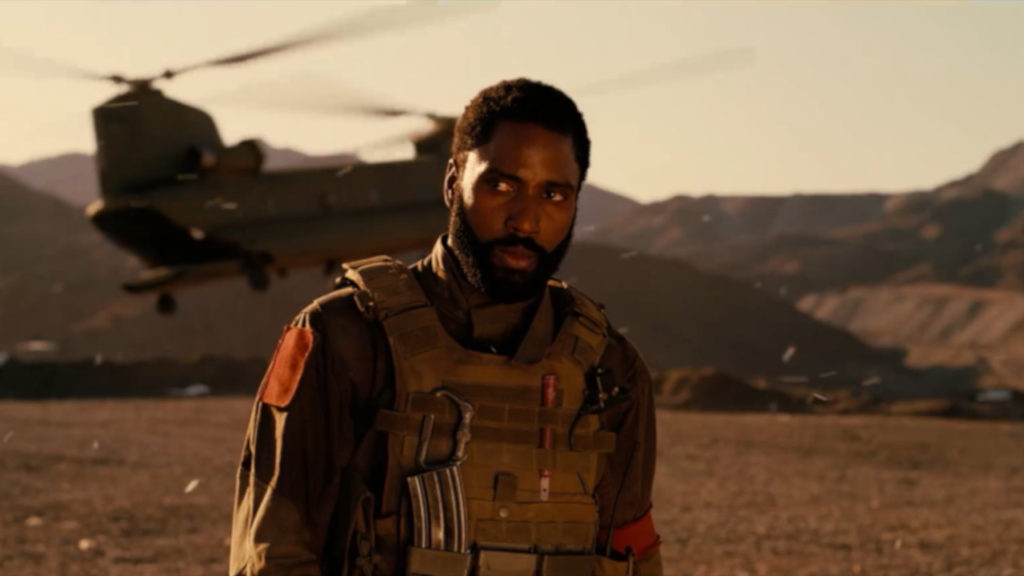
At the climax of Tenet, The Protagonist, Neil, and Ives manage to secure The Algorithm, the object that represents a formula which can be used to reverse the flow of time, not just for inverted objects or people, but for everything, annihilating as life as we know it.
Tenet’s job was to prevent The Algorithm from being buried in the radioactive rubble that resulted from the explosion of the underground nuclear bomb at Stalsk-12. Burying items at isolated nuclear sites being the main method for Sator to safely pass objects to his allies in the far future, without them being disturbed in the intervening years. No one was likely to accidentally dig it up while building a mall or a car park .
What is The Algorithm?
As is explained to The Protagonist by Priya, The Algorithm was a formula that was discovered in the future that can be used to reverse the flow of time. The scientist that formulated the algorithm was so distraught by the implications of such a discovery that she killed herself. Before committing suicide, however, she translated the algorithm and rendered it into nine physical objects which she then inverted and sent back to be hidden in the past.
Why nine objects? Because there are nine nuclear powers and the safest place to hide them would be alongside nuclear material. They are, after all, the most secure locations on the planet.
This reasoning also explains why the “bad guys” from the future chose Andrei Sator as their operative in the past. He essentially came of age during the collapse of the Soviet Union which is widely considered to be one of the most insecure periods in our history. The worry in the West was what would happen to that country’s thousands of nuclear weapons. Would “loose” nukes fall into the hands of terrorists, rogue states, criminals – and plunge the world into a nuclear nightmare? This was the situation that was exploited by our future antagonists.
What’s more, given that Sator was from Stalsk-12, and that one of his first contracts was to handle the cleanup following a nuclear accident there, those in the future knew he would be one of a very small number of people who would be passing through those irradiated sites that they could use to transfer inverted material to the past.
Why is The Algorithm so dangerous? Well, the technology of the turnstiles is limited in that it can only be used to invert objects and people. The Algorithm can be used to completely invert the flow of time so that the future is no longer swimming against the current, and our timeline no longer always comes out on top.
Alight, Neil?
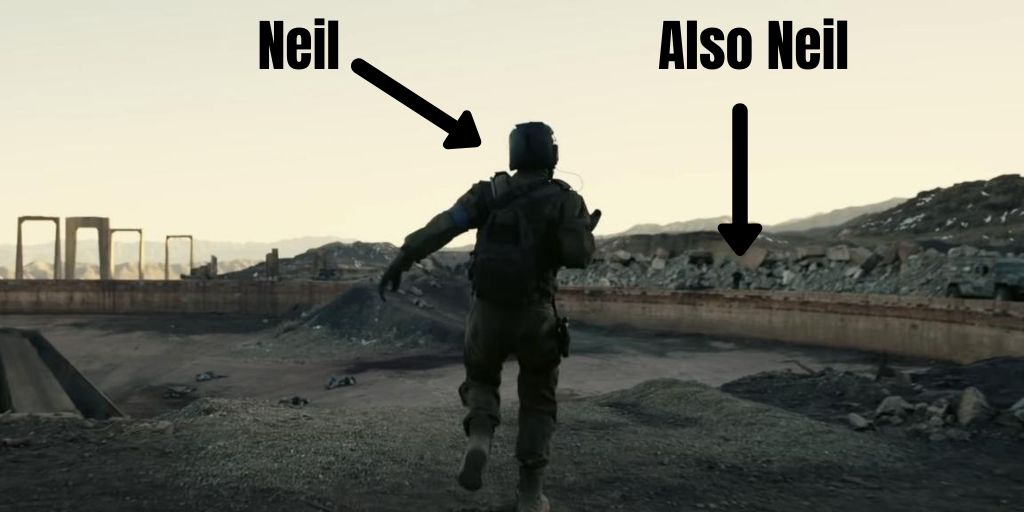
As Tenet comes to a close, The Protagonist, Neil, and Ives split The Algorithm between them and agree to hide the pieces separately and then kill themselves. At some stage. When they do it is their prerogative. This is to prevent anyone in the future from finding the whereabouts of the pieces. While talking to Ives, Neil realizes that only he has the lockpicking skills to open the gate that separated The Protagonist and Ives from The Algorithm and Sator’s henchman Volkov, in the cave at the Hypocenter.
As we’ve already seen, Neil is totally on board with the tenets of… um… Tenet, and its mission, and has no problem getting inverted again to go and open the gate. (Does this mean that at some stages during the climactic battle, there are at least 3 Neils running around at the same time?) The Protagonist doesn’t have to say anything, but Neil suspects this is his last time around.
So, after the movie ends Neil gets in one of Tenet’s turnstiles presumably and heads back to the hypocenter.
With time flowing in reverse from Neil’s perspective, he opens the gate for The Protagonist and Ives, and then waits patiently behind the gate. He then ends up wrestling with Volkov to prevent him from shooting The Protagonist through the gate and is sadly shot in the head. Neil ends up dead, lying face down in the cave, with the coin on a red string visible on his backpack for The Protagonist to notice.
It was when The Protagonist saw this coin on a string on Neil’s backpack at the end of the film that he realized it was Neil who died in the cave.
Who Saved The Protagonist at the Opera?
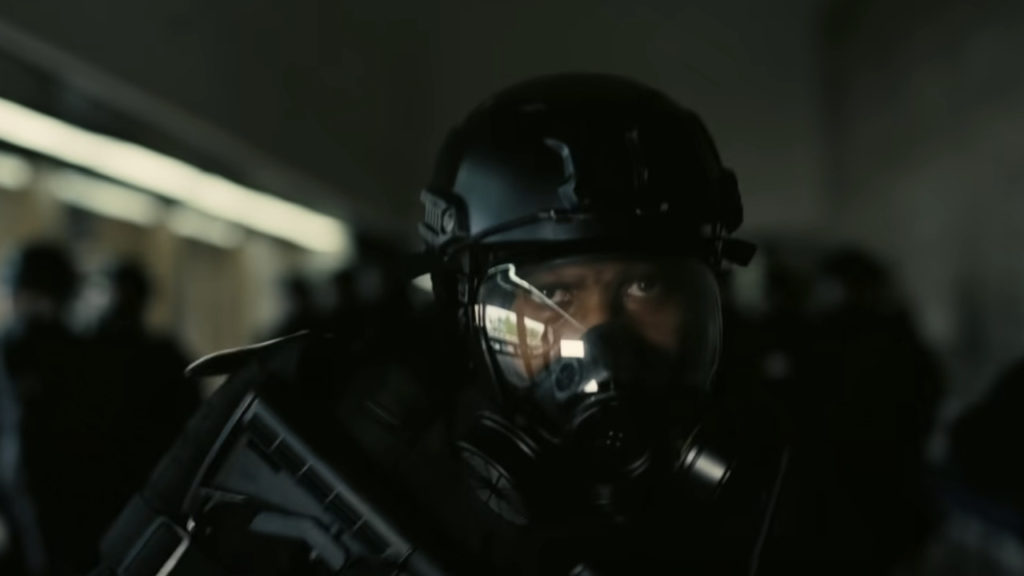
It’s at this point (or on your second viewing as was the case of some of the team here), you might remember the mysterious masked man who saved The Protagonist from getting shot at the Opera in Kiev. Now, from The Protagonists perspective, which is the only way we can make sense of things to be honest, a bullet flies up out of the floor, through one of the terrorists (who we later find out to be Sator’s men), and into the gun of a figure dressed in body armour. As The Protagonist turns to see the man leave he sees a coin on a string on his backpack. It was Neil who saved him! A version of Neil who that version of The Protagonist hadn’t met yet.
Time Bros. forever!
How/When Does The Protagonist Recruit Neil?
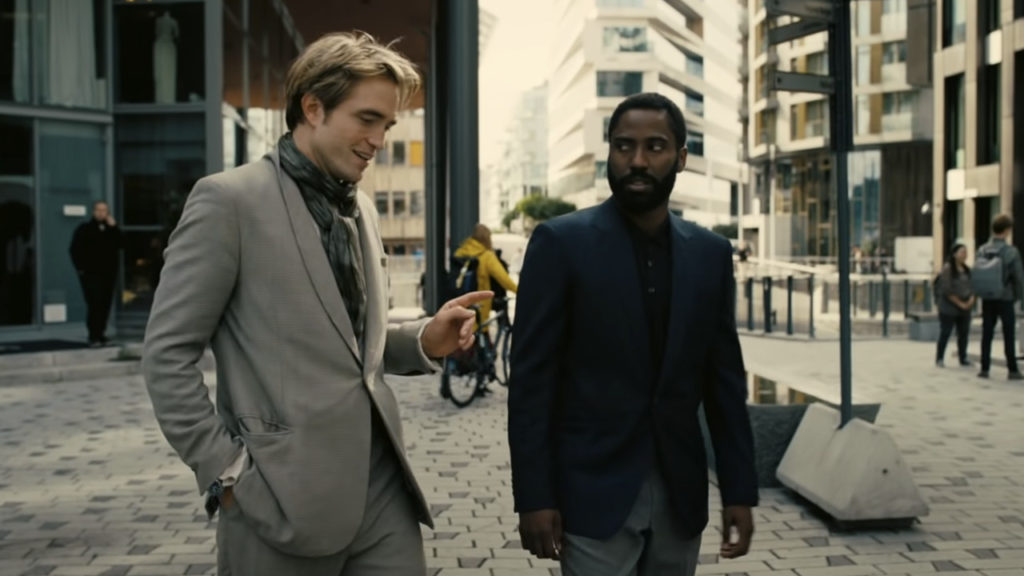
As he heads off on his final mission, Neil finally reveals that it was an older version of The Protagonist who recruited him, before the events of the film. The Protagonist thinks he “recruited” Neil in Mumbai, Neil has already been working with the older version of The Protagonist for some time.
As Neil says to The Protagonist at the end, “You have a future… in the past.”
The whole movie, in fact, unfolds according to a plan set out by this older version of The Protagonist. A plan that’s based upon the experiences of the younger Protagonist that we see in the movie. Neil mentions that everything we’ve seen so far was part of a temporal pincer movement that was orchestrated by The Protagonist in the future.
Did The Protagonist create Tenet?
While this isn’t explicitly stated in the film, we do know that everyone – Neil, Priya, Ives, the present day Protagonist – is working for The Protagonist of the future. (As he says in that moment at the end of the movie, in the car, just before he shoots Priya.)
The Protagonist could well indeed have established Tenet in the future, and then used the turnstiles to set up everything in the past. It’s an intriguing idea.
Why Doesn’t the World End When Kat Shoots Sator on the Boat?

When Kat shoots Sator, the fate of The Algorithm is still up in the air. It might be helpful to think of this like the “time game” from Bill and Ted’s Bogus Journey. Just because you say something will happen in the future it doesn’t mean it will happen unless you see it through.
Working backwards from the far future, Sator’s allies there can’t use The Algorithm to reverse the flow of time (annihilating all life as we know it) unless they have it in their possession. They can’t retrieve it unless it ends up buried in the Stalsk-12 hypocenter when the bomb goes off. So, while The Protagonist is wrestling with Volkov, The Algorithm’s fate is still up in the air.
What About Sator’s Fitness Tracker?
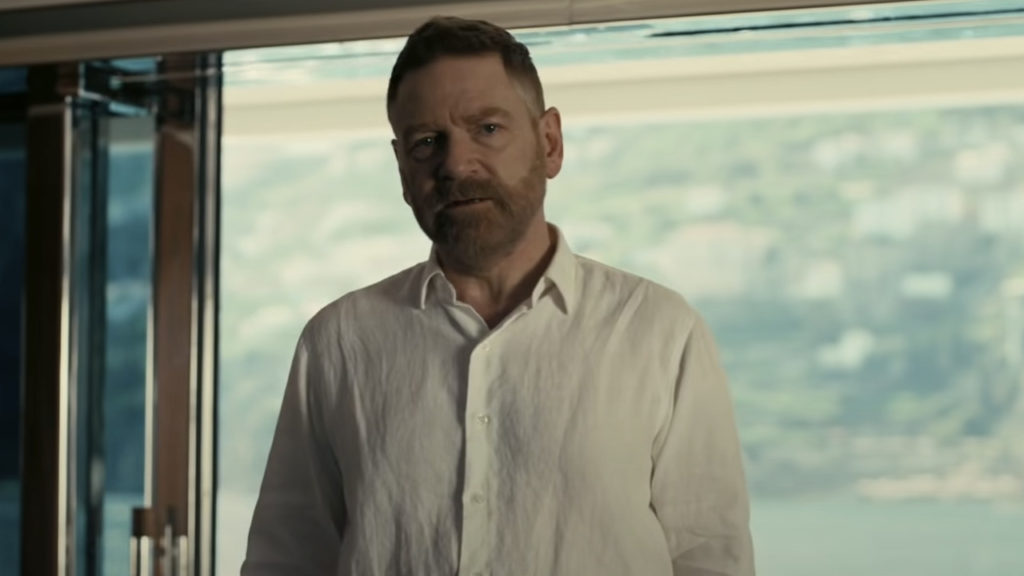
The detonation of the nuclear bomb has nothing to do with Sator’s fitness tracker. The nuke is set to go off at a particular time as seen by the countdown clock on the wall of the cave. As Sir Michael Caine’s Sir Michael Crosby points out, the bomb already went off on “the 14th,” while The Protagonist was originally at the opera siege in Kiev.
The Algorithm isn’t a bomb either. Once Sator dies, all his fitness tracker will do is spam some email accounts that he knows will somehow manage to survive into the far future. His allies will retrieve this message in the future, ascertain the location of The Algorithm, and dig it up. Then, if they have The Algorithm in their possession they can trigger it at the moment of his death, so that it only annihilates the regular flow of time after he has lived out his life. From his perspective, of course.
It’s unclear as to how they would do this and not just trigger it from their own time, but what you gonna do?
Who Is Neil?
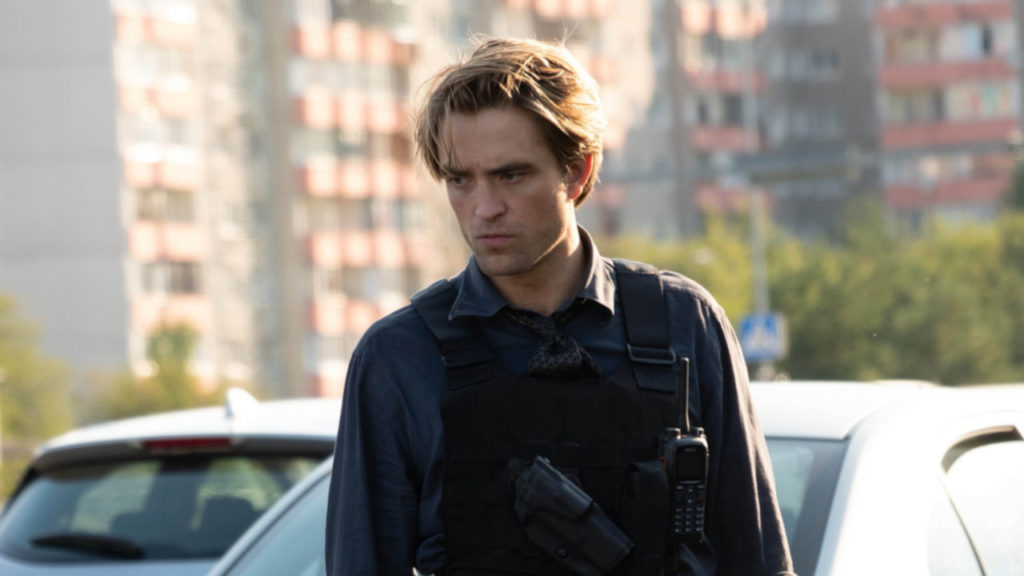
Well, he’s Batman obviously. Or to be more accurate, he’s vengeance.
Just kidding, we’re answering this as we’ve received quite a few questions regarding Neil on the Tenet hotline. Some have theorised that Neil is Kat’s son Max. All grown up in the future, recruited by The Protagonist, and then inverted to work his way back through time on Tenet’s behalf.
Seeing that everything else is so well signposted in the film – like the fact you can clearly see Neil in the car with the rope in the background of the assault on Stalsk-12 as “Inverted Neil” is still arriving at the hypocenter – we find this theory a little unsound.
Unless it turns out on future viewings that the coin on the red string is Vietnamese and that Max picked it up while away from Sator’s yacht on the 14th (Vietnamese “cash coins” have holes in them but fell out of usage in 1948), which would be a nice bit of symmetry.
In a less elegant movie, this would be pointed out as an afterthought. But given how every thing else is actually on the screen and contained within the text of the film, this would be a rather graceless reveal. Not very Nolan if you ask us.
Red vs Blue
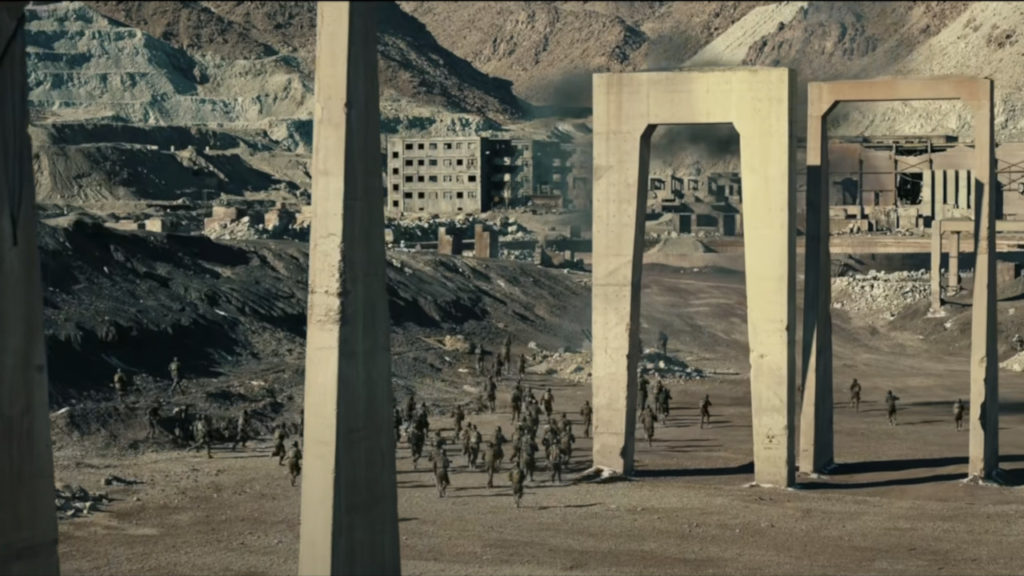
Another popular question we’ve received is why the Tenet forces assaulting Stalsk-12 were split into red and blue teams, so we’ll address this for anyone who’s confused.
Core to Tenet’s “not-time-travel” plot, is the concept of the “temporal pincer movement.” Here, two teams of people working their way forwards and backwards though time to achieve a common goal.
In the climactic assault, the Red Team land at Stalsk-12 ten minutes before the nuclear bomb detonates, while the inverted Blue team, which includes Neil, arrive just after the bomb goes off.
As pointed out by Ives, the Red Team’s job is to fail to defuse the nuke, while the Blue Team’s mission is to clear a path for them, arrive at the rendezvous point, and deliver a status report before they get there!
The Splinter Team (which consist of The Protagonist and Ives) are part of the Red Team, but their job is to use the attack as cover to try and retrieve The Algorithm.
What’s Really Going on Aboard Sator’s Yacht?

Key to understanding Kat and Sator’s confrontation is the idea that there are multiple versions of the characters running around on “the 14th” and not all of them are aware of each other.
We start with the story that Kat tells The Protagonist over dinner when they first meet. On board the yacht off the coast of Vietnam, Sator and Kat have their argument about Max and then Sator heads off in his helicopter to oversee the Kiev opera house assault. Meanwhile, Kat and Max head ashore. We’ll call these Sator-1 and Kat 1. When Kat-1 returns to the yacht, she notices a mysterious woman diving off the deck into the water, and feels envious of her freedom.
Jump forward towards the end of the movie.
“After” (before?) the Plutonium-241 heist, an inverted Sator has the final piece of The Algorithm, and because he is inverted he is travelling backwards through time, relative to the rest of us. This Sator (let’s call him Sator-2) thinks that Kat (let’s call her Kat-2) is dead, after he shot her with the inverted bullet at his turnstile.
Unbeknownst to Sator-2, Kat-2 is very much alive and well after being inverted by The Protagonist and Neil. After teaming up with Tenet and reverting to normal time in Oslo, Kat-2 inverts again to head to Vietnam arriving sometime before Sator-1 and Kat 1 arrive aboard the yacht. As Sator-1 departs the yacht for Kiev, Sator-2 arrives for some quality time before killing himself. Before he reaches the chill-out deck however, Kat-2 sneaks back on board and cleans up the mess from the fight earlier.
As Sator-2 arrives on deck, he assumes that Kat-2 is in fact Kat-1. Kat-2 keeps Sator-2 entertained, delaying him from taking his own life, while the Blue and Red Tenet teams try and recapture The Algorithm. Unfortunately, Kat-2 has had just about enough of any version of Sator and shoots Sator-2. She kills him dead.
Kat-2 drops Sator-2’s body off the yacht just before Kat-1 returns. As Kat -1 looks up, she sees “the other woman” diving off the boat, jealous of her freedom, not realising it is, in fact, herself, finally free of Sator’s grasp.
Sator-1 presumably comes back sometime later and continues psychologically abusing his wife, Kat-1.
Where Does Kat-2 Go After She Kills Sator-2 on the Yacht?
Another key to understanding everything that’s going on in Tenet is to imagine that everything in the movie is happening simultaneously. The opera siege, the attack on Stalsk-12, the events on the yacht, all of it is happening at the same time. The difference being that we are seeing the chronology of events as they play out from The Protagonist’s point of view. Not all of The Protagnists mind you, but the one we first meet, huddled in the back of the van, at the beginning of the movie.
Get it? Good.
Now, once Kat-2 kills Sator-2, dives off the boat, and drags his body away, all she has to do is hang around for 10 days (give or take), until Kat-1 goes off to Tallinn and gets caught up in all of this Tenet stuff, before she can go back to Max and get on with her life. (We say 10 days or so, because when our three leads are on the boat and trying to figure out Sator’s motives, Neil says that all of it happens 10 days ago, on the 14th.)
What Happens If Any of These Characters Encounter Another Version of Themselves?
“Annihilation”- at least according to Wheeler when she’s briefing The Protagonist at Tallinn about the dos and don’ts of inversion. “Number one rule, don’t come into contact with your forward self.” How this annihilation occurs isn’t spelled out, but we think that it’s based on that scholarly time travel principle from Time Cop which states that “the same matter cannot occupy the same space.”
Fruit Loops
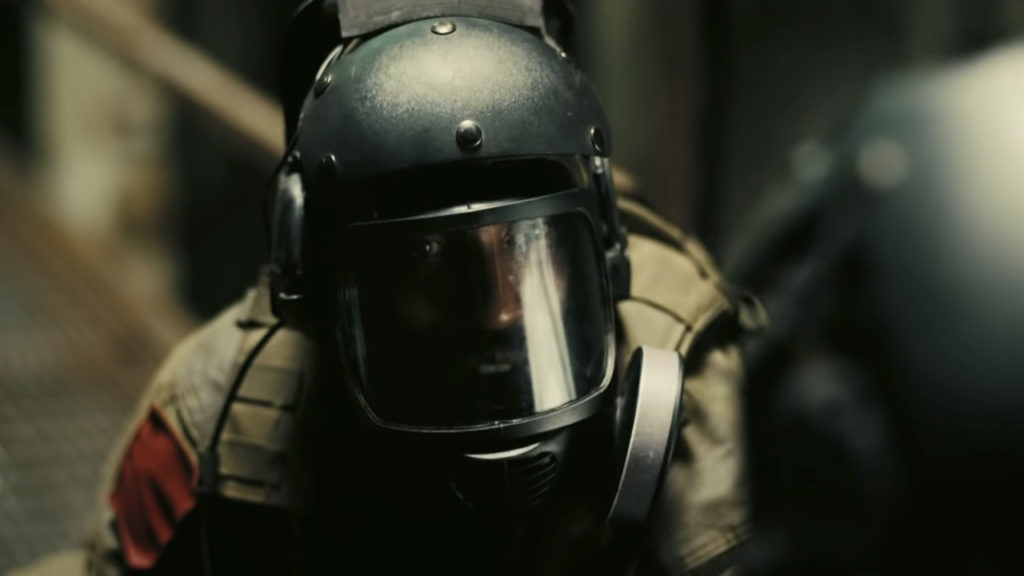
Despite Christopher Nolan’s protestations that Tenet is not a time travel movie, there are quite a lot of people moving (if not travelling) backwards and forwards through time in the film, as well as leaving clues and hints for themselves and each other. This has prompted some readers to ask if the whole film is just one big time loop, but we’d have to disagree.
From The Protagonist’s perspective, he is involved in the attack on the Kiev Opera, joins Tenet, tries to capture the plutonium 241, then stops The Algorithm being buried in Stalsk-12. It is this Protagonist that continues to live into the future, where he will recruit Neil, “get up to some fun stuff,” before sending him back for this temporal pincer movement that was designed to recruit himself into Tenet.
It is even probable that The Protagonist was the one who founded Tenet. Why doesn’t he leave clues for his younger self to help himself out? Because his older self knows what he knew and when he knew it. As Neil says “What’s happened, has happened”.
The film’s tenets of time travel, sorry, inversion, would appear to follow “the single timeline” version of time travel.
In its simplest terms: the future time traveler was always in the past. Any “changes” made to the past are not changes at all, because they already occurred. It’s impossible to change the past, since the past has already happened. Which came first, chicken or egg?
rossonl.wordpress.com
With Tenet, Nolan seemingly accounts for the grandfather paradox but does not specifically answer if you can change the past by warning yourself of an impending event, or what consequences, if any, such changes might have on the timeline.
The Protagonist always prevented The Algorithm being buried, the same way his actions were always going to result in Sator getting the final piece of The Algorithm, even though he inverted in Sator’s turnstile and chased after Sator to stop him getting it.
Things were always going to play out this way. What will be, will be. As for free will? Here, take a cookie. I promise, by the time you’re done eating it, you’ll feel right as rain.
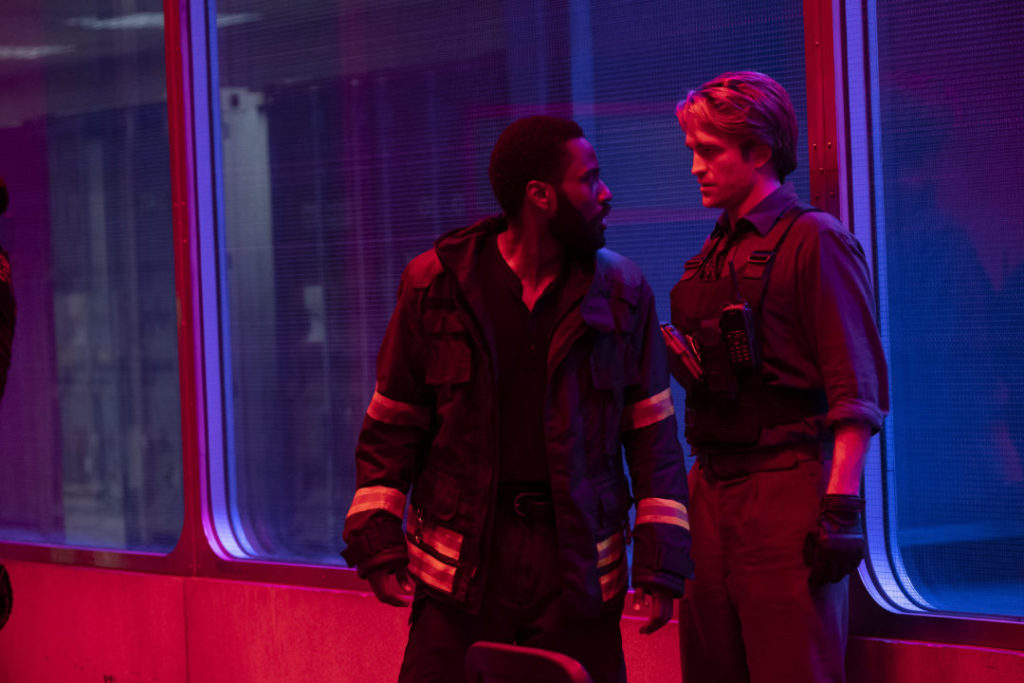

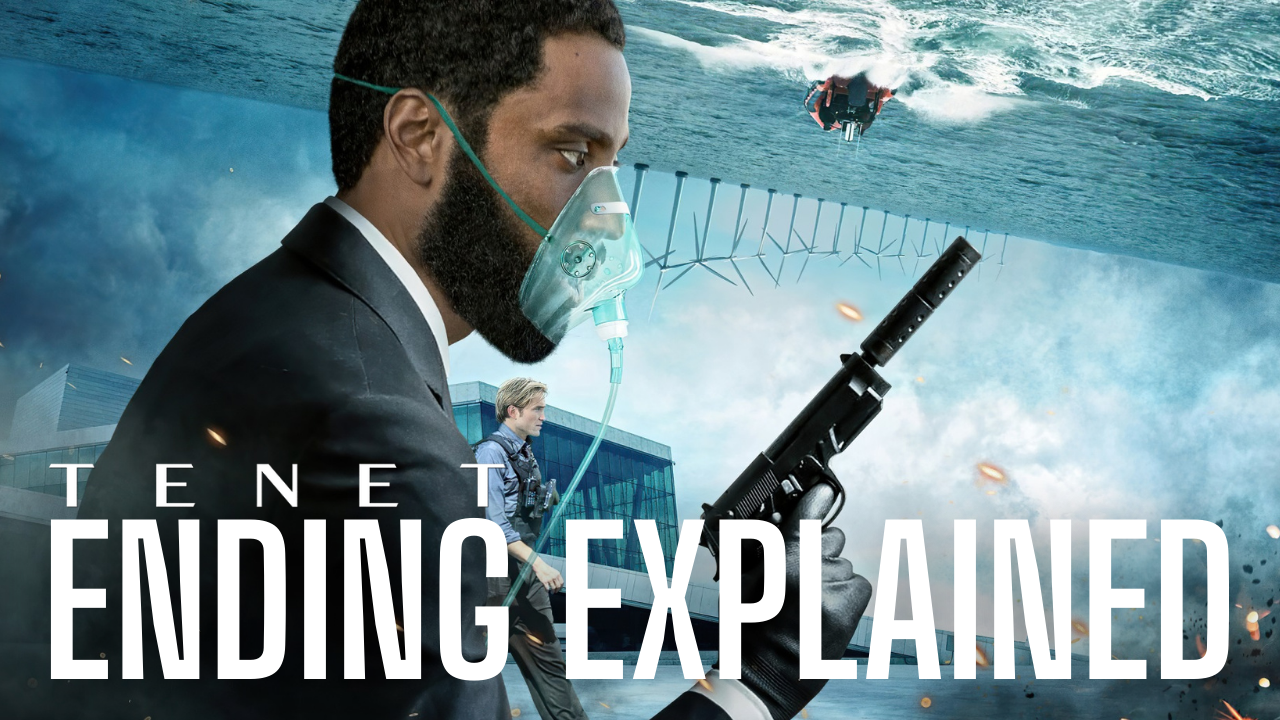
Follow Us